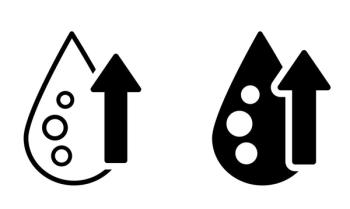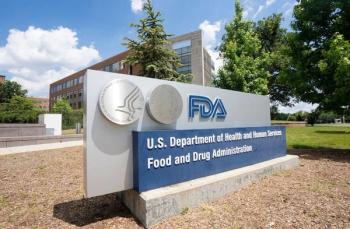
Statins Effective in Primary Prevention of Cardiovascular Disease
BOSTON -- Statins are effective in primary prevention for patients free of cardiovascular disease, according to a meta-analysis.
BOSTON, Nov. 28 -- Statins are effective in primary prevention for patients free of cardiovascular disease, according to a meta-analysis.
Statin therapy decreased major coronary and cerebrovascular events and revascularizations, although not coronary heart disease or overall mortality, found Niteesh Choudry, M.D., Ph.D., of Harvard, and colleagues.
In a meta-analysis of studies of primary prevention for patients at moderate to moderately high risk of cardiovascular disease, with treatment for a mean 4.3 years, statin therapy significantly reduced the risk of major coronary events by 29%, they reported in the Nov. 27 issue of the Archives of Internal Medicine.
Major cerebrovascular events, including stroke, were also decreased by more than 14%, nonfatal MI by 32%, and revascularization by 39%.
The meta-analysis evaluated findings of seven randomized controlled trials that included 42,848 patients, 90% with no history of cardiovascular disease although they were not free of risk factors. The trials included follow-up of at least a year and more than 100 major cardiovascular events. Data came from a search of Medline, Embase, Cochrane Collaboration, and American College of Physicians databases published from 1966 to June 2005.
Mean age of the patients in the studies ranged from 55.1 to 75.4, and the proportion of men ranged from 42% to 100%.
The mean level of pretreatment low-density lipoprotein (LDL-C) was 147 mg/dL (119-192 mg/dL). With statin treatment, the mean range of reduction in levels of total cholesterol, LDL-C, and triglycerides were 17.8%, 26.1%, and 10.6% respectively. High-density lipoprotein cholesterol levels were increased by a mean 3.2%, the investigators said.
There were 924 coronary events in patients randomized to statin therapy and 1,219 events among the controls. Statin therapy reduced the relative risk of major coronary events, major cerebrovascular events, revascularizations, and non-fatal MI by 29.2% (95% CI, 16.7%-39.8%; P
These findings are consistent with the National Cholesterol Education Program's recommendation for statin therapy in moderate to moderately high-risk primary prevention patients, the researchers said.
In a cost analysis, for example, the investigators calculated that statin therapy would reduce the absolute risk of a major coronary event over 4.3 years by 0.75% (low-risk groups), 1.63% (intermediate-risk groups), and 2.51% (high-risk groups). This translates, they said, into the number needed to treat of 133 patients, 61 patients, and 40 patients, respectively. Therefore, they said, the cost effectiveness of statins in primary prevention would vary as a function of patient risk.
Statins appear to be cost-effective for high-risk primary prevention in patients with an absolute 10-year coronary heart disease event rate of higher than 20% but are not cost-effective if the risk is lower than 10%, they said. The routine use for patients at intermediate risk--10% to 20% -- remains controversial, and this study offers efficacy estimates to facilitate further analysis, Dr. Choudhry said.
Thus, he said, even though universal lipid-lowering therapy appears attractive, especially in an intermediate risk primary-prevention population, further studies are needed to clarify the cost-effectiveness of therapy in this group.
The study had several limitations, the researchers wrote. First, three of the trials included a small proportion of secondary prevention patients.
Second, the trials combined primary prevention studies of patients at different risk levels, so that risk-reduction estimates may have been influenced by the higher-risk patients, such as those with diabetes.
In addition, the researchers combined data from studies using different statins and doses, so that depending on the statin and the dose, some regimens may have been more effective than others.
Among the drugs included in the study were Pravachol (pravastatin) (40 mg; 20-40 mg), Mevacor (lovastatin) (20-40 mg), Lipitor (atorvastatin) (10 mg), and Zocor (simvastatin) (40 mg).
In conclusion, the researchers wrote that while statins did not have a significant effect on coronary heart disease mortality or all-cause mortality, these drugs reduced major coronary events, major cerebrovascular events such as stroke, non-fatal-MI, and revascularization procedures in a mainly primary-prevention population. These benefits occurred regardless of the baseline LDL-C levels and risk factors.
Newsletter
Enhance your clinical practice with the Patient Care newsletter, offering the latest evidence-based guidelines, diagnostic insights, and treatment strategies for primary care physicians.

































































































































